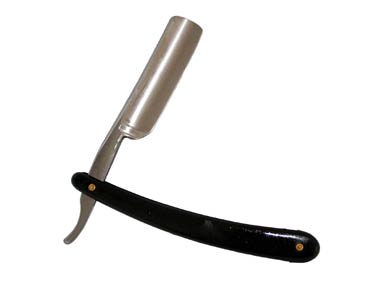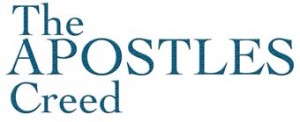 A straight razor is an imposing instrument. I have watched my dad use one a thousand times, my mom too for that matter.
A straight razor is an imposing instrument. I have watched my dad use one a thousand times, my mom too for that matter.
I loved to watch Dad extend the razor strap and whisk the blade back and forth on it. He would hone that blade to a pristine cutting edge before giving a shave or neatly trimming around a fresh haircut.
Customers who asked for a shave relaxed and wholly trusted Dad to set that blade to their face and throat. The steps were simple. First the customer was laid back in the barber’s chair, then Dad jerked the side lever and gently pulled the back to a vertical position. Next a steaming towel, bearably hot, was put on the face. A nice lather followed and as the whiskers were pacified, Dad prepared the blade for the task.
This memory shifts to my Mom’s barber chair. Late one Saturday evening she was asked to give a shave. That didn’t happen often with the lady barber. She was skilled enough, but faith in her didn’t abound.
On this particular evening a fellow stumbled in and it was clear that his speech was wrestling with alcohol. “Hey Lady Barber, I needs ahhhh, I’m need a shave.”
“Get in the chair,” she said without blinking and then she turned to pull a towel for step one.
In no time at all he was leaned back in the chair and rather than closing his eyes and relaxing, he became enamored with Mom and her razor. I always thought it was interesting that a man would trust a razor at his throat. They regularly did.
As Mom pulled the razor up his throat and deftly over his chin, this inebriated patron just smiled. After much gazing he looked at Mom and finally said, “I . . . I think ah’m in love.” The timing and voice was comical and both Mom and Dad couldn’t help but crack up. I’m not sure what Simund Freud would say about this moment, but it’s always been one of Mom’s favorite stories. Here she is with the next best thing to a scalpel at his throat and he is popping off with rapturous declarations of love. I learned a lot from my parents’ sense of humor.
But my Barber Shop Theology thought focuses on the belief, commitment, and trust given to the barber’s and their straight razors.
DO YOU BELIEVE?
I can ask you… “Do you believe in Santa Claus or the Tooth Fairy?” We all know better and will respond accordingly. But I want to know what you believe in. To what do you commit your belief and trust in?
Some 2,000 years ago there was a group of rag-tag men who believed in Jesus. They had walked with him and talked with him. They became Apostles. They changed the world forever. Who were they? – – – The Apostles were primarily composed of a tiny band of disciples who were equipped by Christ Himself. Much of their story is recounted in the book of Acts. The unlikely bands of believers were launched into their world of religious pluralism and superstition with a message. In their world, where the inter-mingling of faiths and shifting religious precepts were the order of the day, these Apostles preached the Gospel. They did not preach Jesus as a way, but THE WAY.
What did the Apostles believe?
The source of this creed is what the Church recognized as the Gospel message that had been passed on from Christ to his apostles. For Christians there is a firm foundation, a place to stand. The apostles believed with their lives, and most were killed standing on the Gospel of Jesus Christ.
THE BELIEF
In the days following the lives of the apostles there were controversies, heresies, error and apostasy, but the Truth marched onward. The Apostles believed the truth. You may note a couple of lines in the Apostles’ Creed that seem out of place, or incompatible with your beliefs. I believe we will find clarity and encouragement as you memorize and study the words of the Creed; you may uncover the beauty of the beliefs that have bound believers across the ages and will carry on into His Kingdom which has no end.
Here is an example of creed (belief) found in I Timothy 3:16; a common confession.
He who was revealed in the Spirit, Beheld by the angels, Proclaimed among the nations, Believed on in the world, Taken up in glory
Before the Bible was fully assembled and bound by the Holy Spirit; before most believers could read or even own a sacred copy of Scripture; and before works of doctrine and faith were composed in the church, Christians were able to unite in common belief.
 I believe in God, the Father Almighty, the Maker of heaven and earth, and in Jesus Christ, His only Son, our Lord: Who was conceived by the Holy Ghost, born of the virgin Mary, suffered under Pontius Pilate, was crucified, dead, and buried; He descended into hell. [death and separation from God] The third day He arose again from the dead; He ascended into heaven and sits on the right hand of God the Father Almighty; from there he shall come to judge the living and the dead. I believe in the Holy Ghost, the holy catholic church [universal body of believers]; the communion of saints; the forgiveness of sins; the resurrection of the body; and the life everlasting. Amen
I believe in God, the Father Almighty, the Maker of heaven and earth, and in Jesus Christ, His only Son, our Lord: Who was conceived by the Holy Ghost, born of the virgin Mary, suffered under Pontius Pilate, was crucified, dead, and buried; He descended into hell. [death and separation from God] The third day He arose again from the dead; He ascended into heaven and sits on the right hand of God the Father Almighty; from there he shall come to judge the living and the dead. I believe in the Holy Ghost, the holy catholic church [universal body of believers]; the communion of saints; the forgiveness of sins; the resurrection of the body; and the life everlasting. Amen
The Creed served the church:
- The Creed was a common statement of faith, a standardized way in which new people could confess their faith in Jesus Christ publically.
- The Creed anchored Christian faith to a tradition; this stance made it more difficult to be led astray by strange doctrines.
- The Creed was an outline of the Gospel of Jesus Christ. From this outline a curriculum for further discipleship came.
- The Creed was memorized and was particularly helpful for those believers who could not read.
- The Creed provided a doctrinal basis for unity among the many congregations in early history. When the basic truths of the Creed were disputed, apostasy was easier to recognize.
Last week I memorized the Apostles’ Creed for the first time. I can see in the Bible the Gospel of Jesus Christ in one million words. I can see in the Apostles’ Creed the Gospel of Jesus Christ in one hundred words. I love the Creed. I believe the Creed. I’m willing to trust it more than any man who ever trusted a straight razor at his throat.
It may be easier to sit in a boat and move with the course of a river,
but the challenge of certitude is to find the Truth and there make one’s stand.